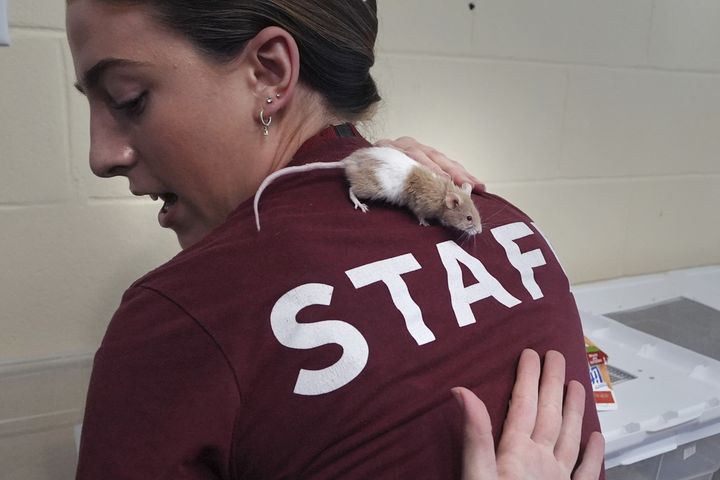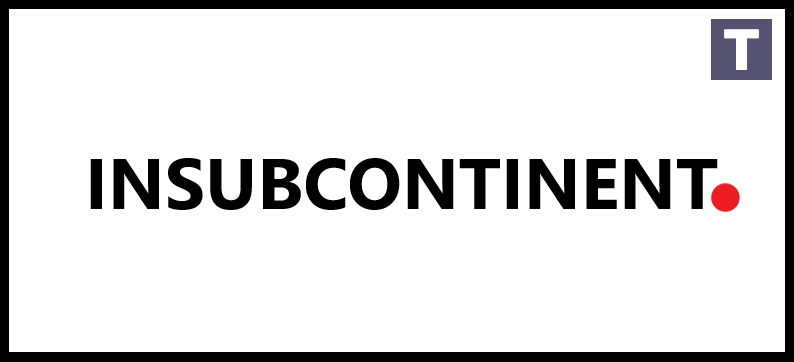Music
Trailers
DailyVideos
India
Pakistan
Afghanistan
Bangladesh
Srilanka
Nepal
Thailand
StockMarket
Business
Technology
Startup
Trending Videos
Coupons
Football
Search
Download App in Playstore
Download App
Best Collections
Technology
GIFs offer a way to compress a ton of information into a small amount of space, and while Gfycat has positioned itself as more of a short-form video centric platform, itgoing to take a step further to see what a step beyond a standard GIF looks like.
The company today said it would be rolling out 360 degree GIF-like short form videos, which will allow users to plant themselves in the middle of what is effectively a looping video like a GIF. While that presents much more of a challenge to users for generating content, CEO Richard Rabbat said the proliferation of tools like 3D cameras and content from the actual producers like video studios would make it an increasingly popular way to interact with short-form content in a compact form factor.
&We&ve always thought that GIFs are amazing from many perspectives,& Rabbat said. &That goes beyond whether you&re looking at the content to use it in messaging, or you&re consuming it for entertainment value, or you&re using it for decoration in the case of the augmented reality effort we&re working on. We want people to really get excited about how they consume the content to the point where they can see the subjects of the content in a much more lifelike way, and really get excited about that.&
Itnot going to be all that unfamiliar from 360 degree videos you might find on Facebook or other platforms. Users on desktop can use their mouse to move a GIF around, while on mobile devices users can pan their phone around in order to see different parts of the GIF. The idea is to give users a way to have a more robust interaction with a piece of content like a GIF in a compact experience without having to strap on a VR headset or anything along those lines.
The company is starting off by rolling out some 360 degree content from Paramount, which is producing 360 degree content around its Mission Impossible films. And while a lot of content on Gfycat — or other platforms — comes from shows, movies or games along those lines, it makes more sense for those studios to use these kinds of tools to increase awareness for their shows or movies.
via Gfycat
There are a lot of companies working on figuring out the best messaging experiences around GIFs. But Google acquiring Tenor, a GIF search tool that works across multiple platforms, may have set a bare minimum bar for the value of companies that are looking to help users share GIFs with their friends. Gfycat positions itself as something thatgeared toward more creator tools, and recently said it hit 180 million monthly active users.
&We&re creating experiences that we think are going to enable others and inspire others to create that same kind of content,& Rabbat said.& We expect itgoing to be a subset of what people do with 2D, but a much more immersive experience where people will spend more time looking at the content. From a consumption perspective, by not requiring people to put on VR headsets, we&re making it much more consumer friendly.&
- Details
- Category: Technology
Read more: Gfycat starts rolling out 360 degree GIF content
Write comment (95 Comments)Craft beer appliance maker PicoBrew is eyeing some bold new directions in drinkables. The companytaken to Kickstarter with the Pico U, a new machine thatcapable of brewing up a pretty broad range of different beverages.
That list includes, but is not limited to:
- Kombucha
- Coffee
- Tea
- Horchata
- Yerba Matte
- Soda
- And, yes, craft beer
The companyCEO Bill Mitchell explains the genesis of the machine thusly, &When pioneering the worldfirst craft beer brewing machine, we had to ensure incredibly precise process control to accurately produce great beers from around the world. We realized this technology also enabled the most precise brewing of coffee and tea and began exploring a broader world of brewed beverages.&
The system goes live on Kickstarter today, with a starting price of $169. Thatfor the single serving configuration, which will jump to $249 at retail. Therealso a deluxe version, which can make up to five liters of craft beer, kombucha and cold brew coffee in a go. That one$189/$299.
The system features Wi-Fi, which lets users monitor brews through a smartphone app — or you can just use the display on the front. The company expects the thing to officially launch in Q1 of next year.
- Details
- Category: Technology
Read more: PicoBrew’s new machine does everything from kombucha to craft beer
Write comment (93 Comments)The mouth tech industry is continuing to pick up steam with electric toothbrush startup Quip latest $10 million funding round from Silicon Valley Bank and its acquisition of dental insurance startup Afora.Afora is a New York-based startup that offers an alternative to traditional dental insurance with plans starting at $25 a month. All of its plans include preventive services like two cleanings per year, annual exams and x-rays, and pre-negotiated pricing for additional work, like root canals.
Afora will now be part of Quipnewly formed venture studio, Quip Labs. The idea with the studio is to fuel innovation in oral health products, platforms and services. Quip did not explicitly mention any other companies it has its eyes on, but the goal with Quip Labs is to enable the startup to explore new ideas in the dental health space, regardless of whether they&re related to Quipcore offering,Quip CEO Simon Enever told TechCrunch via email.
Quip began as a subscription-based electric toothbrush service that replaces tooth paste and brush heads, partly because you&re apparently supposed to change your toothbrush every three months. But before this acquisition, Quip had already started evolving its offerings by inviting dentists to join the platform to connect with Quipconsumer subscribers.
&Our mission has always been to provide an end-to-end solution that makes the preventative care routine — which is so critical to your oral health — more simple, affordable and enjoyable, Enever said.
Quip specifically wants to handle the everything that happens before and after your checkups with the dentist, Enever said. In order to get there, Enever said Quip needed to start with an affordable electric toothbrush, &but we are extremely excited to start accelerating our mission to provide more digital and professional services that complete this loop to more people.&
Other startups in the dental health space include clear teeth aligner startups. One of them, Uniform Teeth, recently closed a $4 million seed round. Whether Quip decides to expand into the clear aligner market remains to be seen, but Enever said &our broad mission is to improve oral health as a whole.&
He added, &Quip labs allows us to explore all aspects of mouth care and the various ways we could help make other health focused services more simple and accessible to more people, always in a manner that aligns with the best practices of the dental professionals behind them.&
Quiplast funding round came in November 2017, when it raised $10 million from Sherpa Capital, Blue Scorpion VC, Demi Lovato and others. The plan with this round is to further accelerate the companyexpansion into &new physical and digital products and services to serve our members,& Enever said. To date, Quip has raised over $20 million in funding.
- Details
- Category: Technology
Read more: Quip raises $10 million for electric toothbrushes and dental care
Write comment (98 Comments)Warnings that Tencent, Asiahighest-valued tech company, might suffer a rare poor quarter of business proved unwarranted after the company smashed analyst expectations for its latest earnings thanks to its fast-growing mobile games business.
The company reported a net profit of23.29 billion CNY ($3.7 billion) on revenue of73.53 billion yuan ($11.5 billion) — beatinga Thomson Reuters estimate of 71.04 billion CNY revenue. Net profit was up 61 percent year-on-year, while revenue increased 48 percent over the same period.
Tencent has historically done well in the games space with the PC its cash cow, butlast year its smartphone games business overtook that of PC based on revenue.
The gap is now becoming noticeableand thereplenty of scope for it to increase further.
Tencent has a hand in the two biggest games in the smartphone world today: Player Unknown Battlegrounds (PUBG) and Fortnite . The company secured the rights to distribute both ‘battle royale& games in China and beyond and said it is just beginning to monetize them. (Fortnite is due to launch in China imminently). Another title —Honour of Kings — was the worldhighest-grossing mobile game last year thanks to its China-based users and Tencenthas been pushing it toworldwide audiences. Finally, a fourth game —QQ Speed Mobile — showed promising revenue after being taken from PC to mobile.
Tencent said mobile game revenue hit 21.7 billion RMB ($3.4 billion) during the quarter, up 68 year-on-year. PC-based games, meanwhile, took in sales of14.1 billion RMB ($2.2 billion) to remain flat over the past 12 months.
Elsewhere, the company said that its WeChat messaging service surpassed one billion active user accounts for the first time. Also in WeChat, the company has built upon its Mini Program feature — which lets developers create apps that tie into WeChat — by introducing Mini Games, there are currently over 500. It also merged WeChat Pay, its mobile payment service which supports offline, with Mini Programs.
- Details
- Category: Technology
Read more: Tencent profit jumps 61% to $3.7B as its mobile gaming business surges
Write comment (91 Comments)Lemonade has made some big moves in the world of insurance. The company uses AI and bots to sell insurance, and has flipped the business model to ensure that Lemonade is never in conflict with customers filing insurance claims.
But the product itself, the actual insurance policy, hasn&t changed much at all. For decades, insurance companies have been held to long, tedious legalese in their insurance contracts. In Lemonadecase, the document is more than 40 pages long and incredibly difficult to understand.
For a company that wants to make buying insurance as easy and as consumer-centric as possible, the very product they sell is in complete opposition to that. Which is why Lemonade is re-writing the policy from scratch.
&I&m a recovering attorney, and I&ve been clean for 20 years,& said Lemonade CEO and cofounder Daniel Schreiber. &I think my English is pretty good, and I have a passing familiarity with insurance and generally I can&t understand this insurance policy. To do the next big thing in insurance means changing insurance. Itnot been done in generations. This is a historic document thatbeen optimized around lawyers.&
So Lemonade has re-written the whole thing to read like a blog post. Policy 2.0, according to Schreiber, is meant to give consumers a clear and easy way to understand what is and what is not covered in their insurance policy.
But, in a little bit of a twist, Lemonade is open-sourcing the policy on GitHub. Anyone, from state regulators to consumer advocacy groups to Lemonade competitors or even interested customers can make edits and contributions to the policy. Plus, Lemonade is opening up use of the policy to other insurance providers under the GNUFree Documentation License.
Part of this has to do with transparency to consumers, but another part is simply about Lemonadegreater mission of making insurance simple.
&We sold you a policy on your phone,& said Schreiber. &We want a policy that makes sense on a five-inch screen.&
I asked Schreiber whether or not there is any concern over rewriting a policy in more plain language when historically, lawyers use specific language to stay within the realms of legal precedent and remove any grey areas that may be litigated.
&Anytime you abandon language thatbeen litigated for years you invite legal uncertainty,& answered Schreiber. &But we think if you&re optimizing for the consumer, giving them clarity into exactly whatcovered and exactly what isn&t, you won&t feel cheated if we can&t cover things because you&ll see that you had that info all along, in plain English.&
One hurdle, however, will be regulators. A good deal of the language in that 10,000 word-long insurance policy is legally required to be in the document. This change from Lemonade requires the company to work with regulators to allow the new policy to be sold, and that conversation differs from state to state.
Thatwhy Schreiber believes Policy 2.0 won&t be available for purchase until sometime in 2019, rolling out on a statewide basis as is approved by regulators.
That said, Schreiber said healready in conversation with regulators and is seeing willingness to be flexible on this.
When Policy 2.0 does come to the main stage, current Lemonade subscribers will be able to immediately change over to the new policy or keep their original policy.
Lemonade has raised a total of $180 million, including a whopping $120 million round led by SoftBank from December.
- Details
- Category: Technology
Read more: Lemonade wants to rewrite the insurance policy itself
Write comment (95 Comments)One final shout-out across Europe to all the creative coders, hackers, programmers and tech makers who suffer from severe procrastination. This is your last chance to register for a spot in the next TechCrunch Hackathon, which takes place at VivaTech on May 25-26 at the Paris Expo Porte de Versailles. You have one week left to get your free ticket.
The TC Hackathon — open to residents from one of these European countries — represents an amazing opportunity for you to show off your creative coding skills to the movers and shakers in the European tech scene. Whether you come to build something fun, innovative or life-changing, you&ll be surrounded — and pushed toward greatness — by the best and brightest coders on the continent.
Herehow the Hackathon works. Competitors form ad hoc teams, and they have just 24 hours to create, code and hack their way to a working product using BeMyApp, the official Hackathon platform. You&ll have to rely on your legal stimulant of choice — coffee, energy drinks or sugar — because once the 24-hour clock stops, each tired team gets just 60 seconds to pitch their creation to a panel of judges. And they&re wide awake.
The judges will award each team a score between 1-5. The top-scoring team wins the €5,000 grand-prize, and each team that averages a three or better wins five tickets to VivaTech 2019 plus two Innovator tickets toTechCrunch Disrupt Berlinin November.
But we&re not quite finished in the cash-and-prizes department. Thanks to our generous sponsors, you can hack away at any of these contest challenges from leboncoin, Renault, GEFCO - Talan, Microsoft and also our final sponsor IBM:
IBM Challenge: Think you can build an awesome AI-powered app for iOS in a few hours You can with IBMWatson and AppleCore ML. You&ll train your own machine learning models and use them in your apps quickly. Your challenge Let your imagination run wild as you build an app that couples AI with videos and photos to face down real problems; perhaps monitor a babysleep for harmful situations. The prize is €5,000, but beyond that, this hackathon will let you deliver a lasting and significant impact.
Hackathon tickets won&t cost you a thing, but once they&re gone, thatit — no second chances.
The TechCrunch Hackathon at VivaTech takes place at the Expo Porte de Versailles in Paris on May 25-26. We can&t wait to see what you create, but you have only one week left to secure your spot. Register for the Hackathon right now!
- Details
- Category: Technology
Read more: One week left to get a free ticket for TC Hackathon at VivaTech
Write comment (100 Comments)Page 5371 of 5614

 15
15











